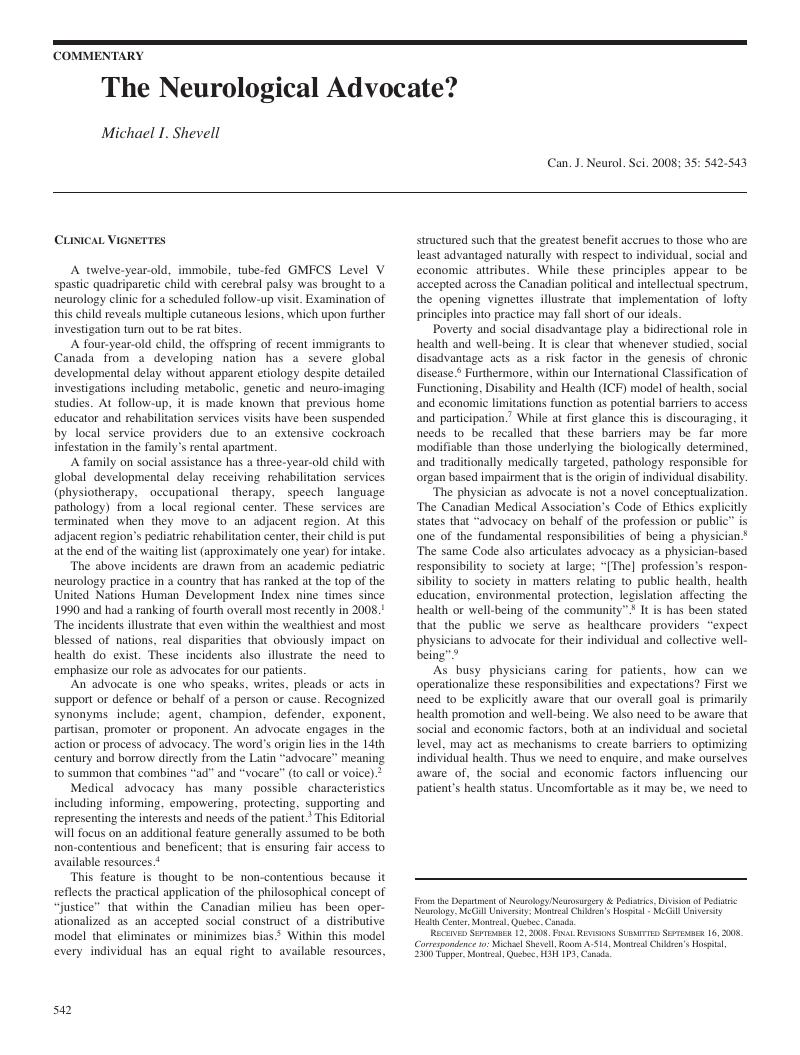Article contents
The Neurological Advocate?
Published online by Cambridge University Press: 02 December 2014
Abstract
An abstract is not available for this content so a preview has been provided. As you have access to this content, a full PDF is available via the ‘Save PDF’ action button.

- Type
- Commentary
- Information
- Copyright
- Copyright © The Canadian Journal of Neurological 2008
References
3.
Schwartz, L. Is there an advocate in the house? The role of health care professionals in patient advocacy. J Med Ethics. 2002;28: 37–40.Google Scholar
4.
Caplan, A.
The ethics of gatekeeping in rehabilitation medicine. J Head Trauma Rehab. 1997;12L:29–36.Google Scholar
5.
Rawls, J.
Justice on Fairness: A Restatement. Harvard University Press: Boston Massachusetts, 2001.Google Scholar
6.
Leon, DA, Walt, G.
Poverty, Inequality and Health: An International Perspective. Oxford University Press: Oxford, UK, 2001.Google Scholar
7.
International Classification of Functioning, Disability & Health (ICF). http:www.edc.gov/nchs/about/otheract/icd9/icfhome.htmGoogle Scholar
- 1
- Cited by


